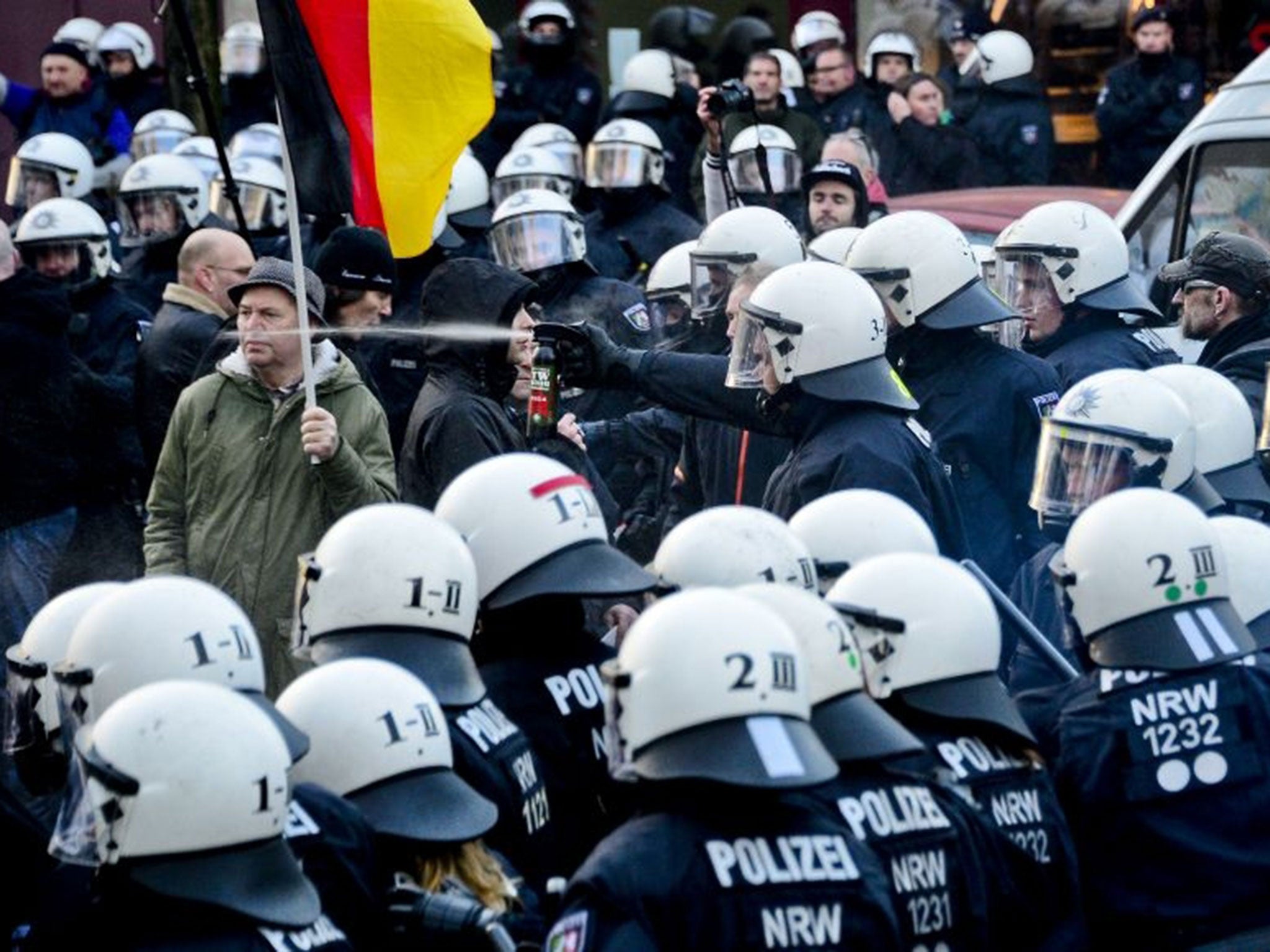It's time to face the truth about immigration - starting with the facts about who's most likely to commit crime
Studies actually show immigrants seem less likely to commit crime than native populations, despite tending to have lower incomes and live in deprived areas


Your support helps us to tell the story
From reproductive rights to climate change to Big Tech, The Independent is on the ground when the story is developing. Whether it's investigating the financials of Elon Musk's pro-Trump PAC or producing our latest documentary, 'The A Word', which shines a light on the American women fighting for reproductive rights, we know how important it is to parse out the facts from the messaging.
At such a critical moment in US history, we need reporters on the ground. Your donation allows us to keep sending journalists to speak to both sides of the story.
The Independent is trusted by Americans across the entire political spectrum. And unlike many other quality news outlets, we choose not to lock Americans out of our reporting and analysis with paywalls. We believe quality journalism should be available to everyone, paid for by those who can afford it.
Your support makes all the difference.The mood across Europe is hardening as desperate people continue to pour across borders in search of sanctuary or escape from poverty. Hungary’s hardline leader has called for a ‘European defence line’ on Greek borders. Norway is ordering thousands of refugees to get back on bikes into Russia. Even liberal Sweden has tightened controls. Meanwhile Switzerland, one of the world’s richest nations with a dodgy history of hiding stolen property, has joined Denmark by demanding refugees hand assets over to the state.
What a grim start to 2016. Anger and fear have grown after sexual assaults in German cities during New Year celebrations, seemingly covered up by police. Shops there are selling out of pepper spray, a public swimming pool has banned male asylum seekers and Angela Merkel’s humane response is blamed for declining popularity. Yet her party remains well ahead in polls and her stance is backed still by half the nation, despite another 51,395 newcomers arriving in the first two weeks of January.
Viktor Orbán, the authoritarian Hungarian prime minister, is right on one thing at least: this may be the year’s decisive issue. The huge influx of people presents serious challenge to European values, those enlightened ideals of humanity, liberty and unity. Despite rough seas, the numbers entering Europe in the first ten days of January were three times the level of the entire month last year. Sixty human beings have drowned attempting Mediterranean crossings already this year.
We need honest debate about the issues raised, of course. All the issues. Certainly there are cultural implications for any country that suddenly takes in large numbers from other societies while no European nation has found the perfect solution to integration. But moral panic is pointless. Each wave of mass immigration provokes fears; first Catholics, then Jews and now Muslims are blamed for alien customs and divided loyalties. Even the great Liberal leader William Gladstone penned a diatribe again Catholics, warning they would destroy British values and import crimes ‘beneath a suffocating cloud of incense.’
It is worth remembering one key point about migration amid justified outrage over assaults and crimes in Cologne. Studies actually show immigrants seem less likely to commit crime than native populations, despite tending to have lower incomes and live in deprived areas; one theory suggests this is because those arriving are ambitious people wanting to work and improve their lives. There can be no dispute Britain has seen falling crime during recent years of high immigration.
Much play has been made of the disproportionate numbers of young single men among the influx of Arab men arriving in Europe by sea, even fuelling overblown fears about gender imbalances. Yet this is the inevitable consequence of Europe’s chaotic approach to controlling migration, with countries all blaming each other and so few politicians showing real leadership. If the only route to safety from war and a secure future is both hard and hazardous, then families inevitably send strongest and fittest members first - as I have heard repeatedly from refugees in Greece, Italy, France and Germany.
Blustering politicians try to look tough but few dare admit mass movement of people goes alongside the globalisation that drives our prosperity. Poor countries getting richer means more people move around the world, something we in the West take as our birthright. The key is not to pretend this can be stopped but to find fair ways to manage migration, protect refugees and enhance integration. It is to Europe’s shame that poorer places from Jordan, Lebanon and Turkey to Pakistan, Iran and Uganda have shown more generosity than panicking rich nations that love to pontificate about decency, freedom and human rights.
Building walls does not stop the flow; they merely enrich people smugglers - to the tune of £4bn last year, according to the head of Europol. They cause deaths as determined migrants and desperate refugees seek ways round them. Research also shows restrictions can be counter-productive by preventing the circulation of people, discouraging return and pushing migrants into permanent settlement. This shows the need for informed discussion, since everyone shares an interest in resolving the crisis apart from gangsters and far-right groups exploiting the current mess.
Britain - the country that would not even support rescue missions in the Med at one stage - attempts to stand aloof. Ministers know our island nation is protected by water and, while refusing to take even lone refugee children, argue that pumping aid into Syria’s neighbours is the most sympathetic response. Yet even our £1.1bn is a pittance given the demands caused by such a cruel conflict. Too much cash goes on unappealing camps families compare to prisons, while vulnerable Syrians struggling to survive elsewhere in Jordan must live off demeaning food vouchers worth just £10 a month. They get even less in Iraq.
Ministers are pushing for the right of refugees to work in host countries. This would make a big difference. Many end up earning a pittance in the black economy, exploited by bosses and undermining native workers; I met one Syrian in Amman working 14 hours daily, seven days a week in a bakery for less than half the going rate. No wonder so many risk flight to Europe. Yet back home Britain bans most asylum seekers from working and imposes tight restrictions on the few allowed to take jobs. Such is the hypocrisy swirling around a debate that becomes more blinkered, more depressing and more toxic by the day.
Join our commenting forum
Join thought-provoking conversations, follow other Independent readers and see their replies
Comments